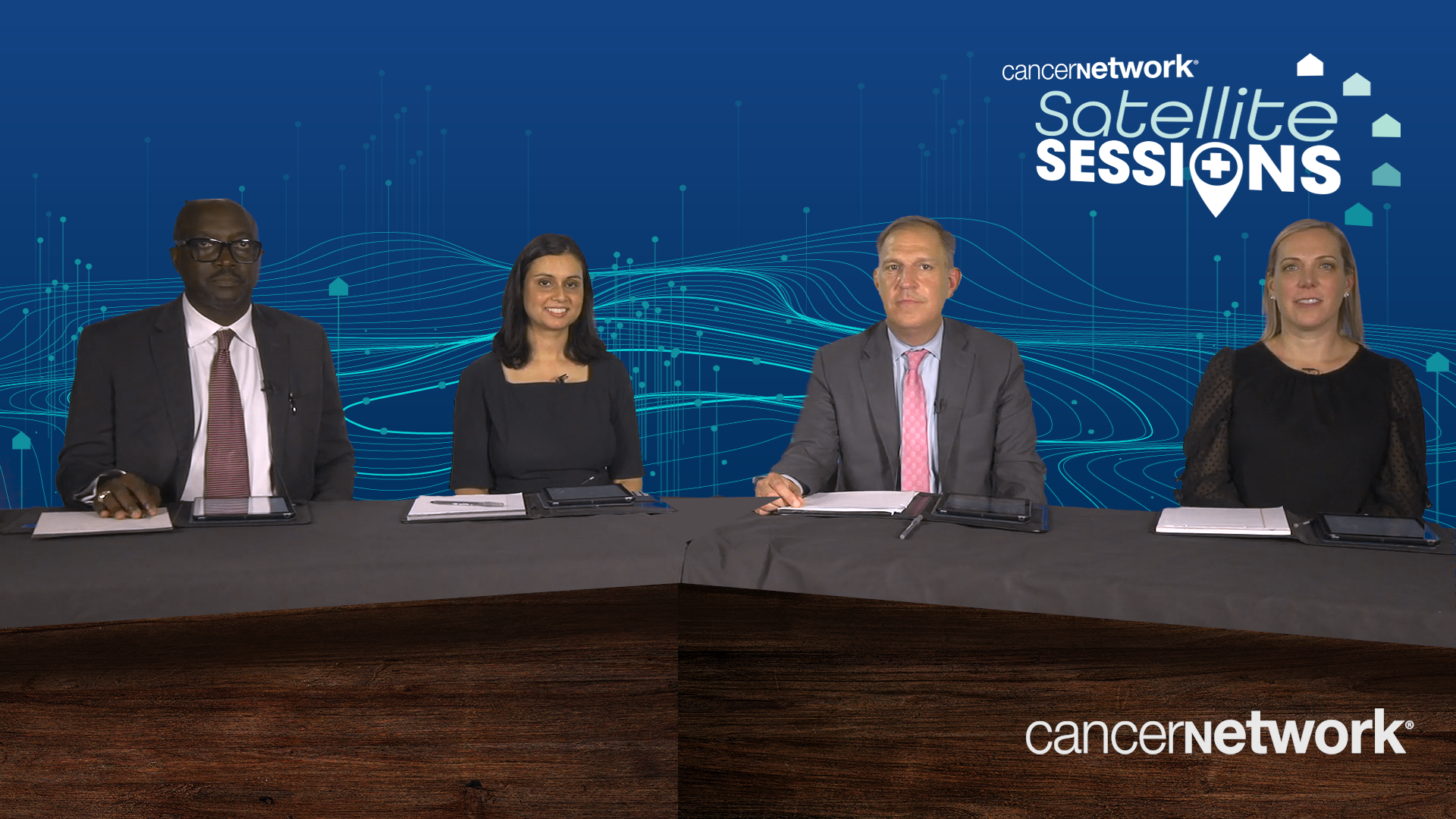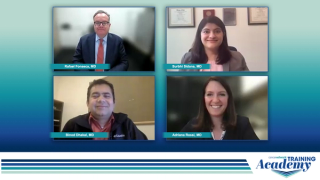
Multiple Myeloma
Latest News
Latest Videos

CME Content
More News

A single dose of motixafortide results in achievement of stem cell collection goal in patients with multiple myeloma.

Bispecific antibodies may be more broadly applicable as treatment for patients with multiple myeloma in the short-term, according to Ajai Chari, MD.

Patients with multiple myeloma and enduring MRD-negativity are able to achieve the deepest responses with ciltacabtagene autoleucel, according to Yi Lin, MD, PhD.
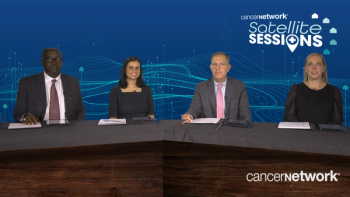
The expert panel discusses factors that influence referral to transplant as well as selecting maintenance and consolidation therapies for patients with multiple myeloma.

Key opinion leaders in the field of multiple myeloma review data looking at patient outcomes in the GRIFFIN and MASTER trials based on cytogenetic abnormalities.
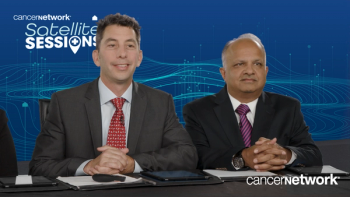
Michael Rosenzweig, MD, MS, presents the clinical scenario of a 68-year-old man with transplant-ineligible newly diagnosed multiple myeloma to the expert panel for discussion.
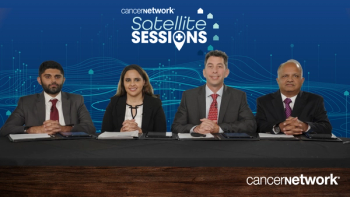
Natasha Garg, DO, MS, and Neel Talwar, MD, explain the resources they utilize at City of Hope for treating patients with high-risk newly diagnosed multiple myeloma.

Investigators report that patients with relapsed/refractory myeloma treated with mezigdomide and dexamethasone primarily experienced myelotoxic effects.

A detailed overview of therapeutic options for patients undergoing treatment for newly diagnosed multiple myeloma.

A panel of experts on multiple myeloma discuss the decision to refer patients with newly diagnosed multiple myeloma for transplant.

A panel of experts from City of Hope and satellite clinics review the available frontline therapy options for patients with transplant-eligible newly diagnosed multiple myeloma.

Michael Rosenzweig, MD, MS, presents the clinical scenario of a 61-year-old woman with transplant-eligible newly diagnosed multiple myeloma to the panel for discussion.

Findings from the phase 1/2 MajesTEC-1 study support the European Commission’s approval of teclistamab at a reduced dose frequency for patients with relapsed/refractory multiple myeloma.

At an Around the Practice, experts from Emory University gathered to discuss treatment options for patients with multiple myeloma who are transplant-eligible or ineligible.

Experts in the field of multiple myeloma highlight key takeaways for clinicans to be aware of for infections associated with bispecific antibody multiple myeloma treatments.

The FDA allows for expanded bridging therapies in addition to other trial protocol amendments to enable investigators to continue their evaluation of CART-ddBCMA in relapsed/refractory multiple myeloma.

Saad. Z. Usmani, MD, leads a panel of experts in discussing toxicities associated with treatment for multiple myeloma.
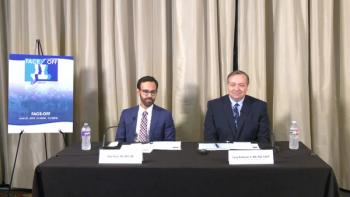
In the final cross Q&A session from the multiple myeloma module, panelists discuss implications of IKEMA and consider the importance of biochemical versus clinical progression.
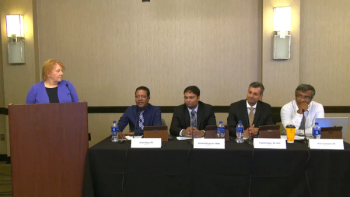
Expert Wilson Gonsalves, MD, shares clinical data in multiple myeloma centered on the distinction between biochemical versus clinical progression.

Elranatamab-bcmm is now approved for patients with relapsed/refractory multiple myeloma who have received at least 4 prior lines of therapy.

Experts discuss key data updates in real-world newly diagnosed multiple myeloma practices, and how these findings may change the treatment paradigm.

Covering the first of two abstracts, Wilson Gonsalves, MD, reviews data from the IKEMA study of isatuximab KD in patients with relapsed/refractory multiple myeloma.

Panelists from both the Mayo Clinic and UT Southwestern comment on data from ALLIANCE A061202 and consider the role of isatuximab in patients with relapsed/refractory multiple myeloma.

Patients with relapsed/refractory multiple myeloma may now receive talquetamab following the agent’s accelerated approval by the FDA.

Experts from Mayo Clinic and The University of Texas MD Anderson Cancer Center discuss results from multiple myeloma trials presented at the 2023 American Society of Clinical Oncology Annual Meeting and how they may apply to clinical practice.


